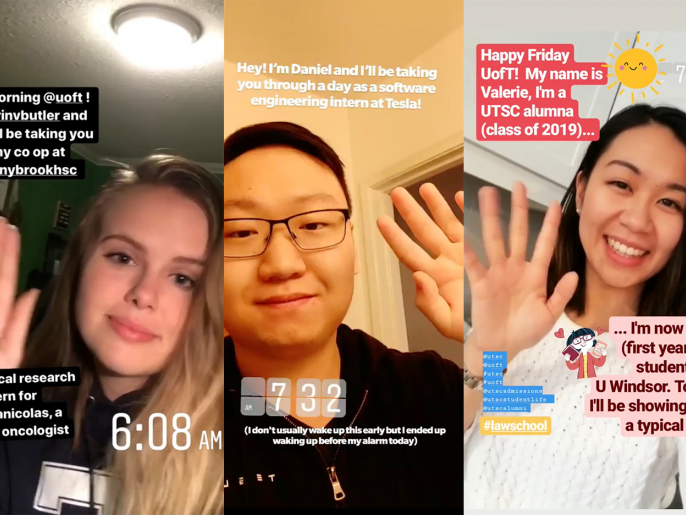Krishani Patel
Psychology Specialist
Psychology specialist Krishani Patel reflects on her work terms and why it’s important to keep an open mind.
Work Terms: Ontario Ministry of Education
With an interest in behavioural analysis TV shows like CSI and Criminal Minds, Krishani knew from high school that she wanted to study psychology. After having completed two years of study, however, it became clear to her that graduate school and lab research wasn't the right path for her.
Enter two co-op work terms as a policy analyst at the Ontario Ministry of Education. She was drawn to the role thanks to an interest in public policy sparked by her sister, who had studied political science; the fact that the role didn’t involve conducting psychological research was also a plus.
New perspectives on policymaking
“I never knew how much thought had to be put into providing families with child care until my work here,” Krishani says, “I knew that it was becoming more unaffordable, and that licensed spots were tough to find. However, I hadn’t given much thought to fee subsidies, or the different types of programs available, or the different challenges that different types of families might encounter, or all the work that goes into keeping the programs running smoothly. In short, I learned quickly that there wasn’t one simple solution to providing care in Ontario.”
It was coming to grips with these intricacies that transformed Krishani’s appreciation for the formation and evolution of public policy: “I’ve come to realize that everyone’s needs are different; while you can try your best to address them all, there will always be room for improvement.”
A shift in experience and confidence
While her first work term saw her involved with proposal analysis and funding decisions for Indigenous-led programs as part of the Truth & Reconciliation Commission, it was during her second work term that she gleaned insights into operations during an election and change in the provincial administration. It was during that time that she worked on confidential materials and briefing notes. She was able to use the skills she had gained over the course of her previous work term as well, gaining confidence in her newfound skills and abilities.
“I think that’s what surprised me most: when I first started there, I felt like an inexperienced student at her first “real” job. By the time my second term came to an end, I felt like just another person in my team. I felt valued and important.”
She also cites the finding the confidence to ask questions as something that helped her move from feeling inexperienced to feeling comfortable within the team.
“By asking my colleagues questions, I was able to understand things faster, and their answers gave me more context as well. I think a lot of times students are scared to look inexperienced, but by asking questions, you can show that you are interested in this work. Sometimes, even the simplest questions can lead your colleagues to reflect on positions that may not have previously been considered.”
Tapping into “hidden” skills
She attributes her ability to seek new perspectives to her studies in psychology, where she was taught to think critically about course readings, allowing her to consider angles that others may not have. Thanks to a highly supportive work environment, her self-confidence improved and she began to see the value in her contributions.
She also credits her psychology experience with her research and analytical skills; her own academic research, and reading and analyzing others’ work transferred quickly over to researching and analyzing public policies in Canada and beyond.
All those hours of working on research essays, proposals, experimental designs, and co-op written assignments paid off in Krishani’s co-op terms as well: because of her ability to express herself well in writing, she had the opportunity to draft and edit government guidelines, service agreements, and more.
“Virtually every skill I developed throughout my studies was used in this role, including project management, communication and collaboration.”
Support from the Co-op program
Krishani credits Michael – a student development coordinator that taught her in 2nd year – with a high level of support through the co-op process through classroom learning, strengthening skills, preparing for mock interviews and learning more about body language. What stands out to her most, though, is the support she received when he was no longer her coordinator:
“I remember the day I was called for an interview – I immediately reached out to him and to my current coordinator at the time for help with interview prep. I remember being so nervous and the thing he said that stuck most was: “Remember, you’ve already impressed them. That’s why they chose you for an interview.” Hearing this from someone else is so much more convincing that telling yourself that! His insights instilled more self-confidence and were key in helping me stay focused and cool.”
A word to new Co-op students
“People tend to forget that studying psychology fine-tunes skills that are highly transferrable, so you aren't restricted to working in the same field of your study. As an upper year student, I think it’s important to remind my younger peers that sometimes you don't always end up where you thought you were supposed to, and most of the time, it's for the better.”

